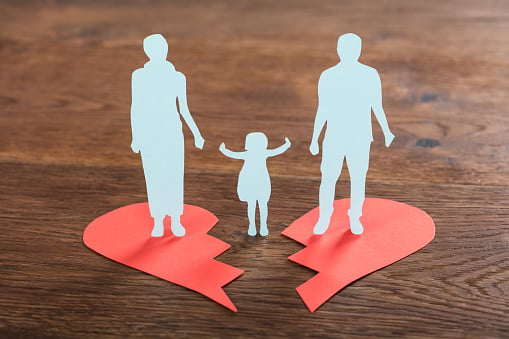Parental divorce can have both short-term and long-term negative effects on children. It is important to note that all children try to deal with such situations according to their mental level and age. Furthermore, the effects of divorce may vary depending on a number of factors, including the age of the child, the level of conflict between the parents, and the arrangement of external support. Following are the effects of divorce that children commonly face:
Emotional distress: Children may experience a range of emotions during parental divorce, including sadness, anger, confusion and anxiety. They may also feel irreparable loss or rejection in their lives, especially when one parent leaves the home.
Behavioral changes: Some children show behavioral changes such as being irresponsible at work, withdrawing from social activities or declining academic performance. These behaviors are a child’s way of coping with the stress and uncertainty of divorce.
Mental stress: Divorce often brings additional stress into a child’s life as they have to adjust to new living arrangements, routines, and possibly changing schools or neighborhoods and new people.
Guilt and responsibility: Sometimes children blame themselves for their parents’ divorce, thinking that they somehow caused it. This feeling of guilt leads to low self-esteem.
Difficulties in starting new relationships: Children may struggle to develop and maintain healthy relationships in the future, as they have difficulty trusting others or fear rejection.
Financial difficulties: Divorce can also lead to financial changes for the family that affect the child’s quality of life and access to resources.
Parental Attitudes After Divorce: Even after divorce, ongoing conflict between parents has a negative impact on children. Children feel caught in the middle of their parents’ conflict and want a way out.
Instability: Divorce always means changes in living arrangements and its effect is instability in children’s well-being and disruption of their routines. This is a particularly difficult time for young children.
Long term effects: Some studies show that the consequences of divorce persist into adulthood, affecting a child’s mental health, relationships, and even their likelihood of divorce as adults.
(function(d, s, id){
var js, fjs = d.getElementsByTagName(s)[0];
if (d.getElementById(id)) {return;}
js = d.createElement(s); js.id = id;
js.src = “//connect.facebook.net/en_US/sdk.js#xfbml=1&version=v2.3&appId=770767426360150”;
fjs.parentNode.insertBefore(js, fjs);
}(document, ‘script’, ‘facebook-jssdk’));
(function(d, s, id) {
var js, fjs = d.getElementsByTagName(s)[0];
if (d.getElementById(id)) return;
js = d.createElement(s); js.id = id;
js.src = “//connect.facebook.net/en_GB/sdk.js#xfbml=1&version=v2.7”;
fjs.parentNode.insertBefore(js, fjs);
}(document, ‘script’, ‘facebook-jssdk’));



